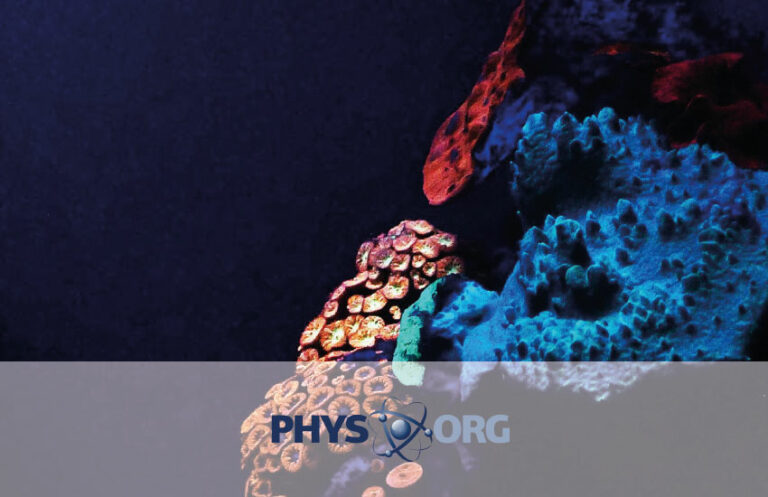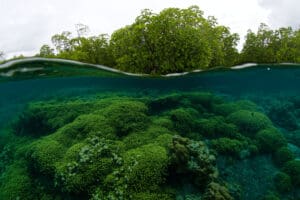Scientists from the University of Southampton have found that corals survive in deep water by making a special type of fluorescent protein that captures blue light and reemits it as orange-red light, which has the potential to penetrate deeper into the coral’s tissue and promotes the photosynthetic capacity of the zooxanthellae.
These scientists displayed their research at this year’s Royal Society Summer Science Exhibition and published their work in Proceedings of the Royal Society B.
Prof. Jörg Wiedenmann, head of the Coral Reef Laboratory at the University of Southampton said:
“This is an important step forward in understanding how the mysterious fluorescent pigments in corals work. Our finding help us to understand how the amazing diversity of coral colours structures the communities on coral reef. Deep water habitats are discussed as potential refuges for corals from the increasingly degraded shallow water reefs. Our work shows that the ‘deep blue sea’ may not be the welcoming sanctuary our endangered coral reefs can retreat to without consequence.”
Aside from lending the stunning colours to corals, fluorescent proteins also have important applications for human health. By glowing green, yellow and red under a blue light, these proteins enable scientists to make important discoveries in cancer and HIV research by lighting up living cells so they can be seen under a microscope.
“Coral reef survival is dangerously threatened by climate change and human activity. Reef organisms can provide us with potential life-saving tools and products, so we need to act now and protect this pharmaceutical treasure chest”, said Professor Wiedenmann. “Conservation organisations like Blue Ventures will play an increasingly important role in safeguarding precious corals, which are of immense value to humankind.”
Read the full article here: Deep water corals glow in the dark to survive
#GlowingCorals is supporting Blue Ventures. Find out how you can support Blue Ventures to protect coral reefs.
Cover image: Prof. Jörg Wiedenmann


















